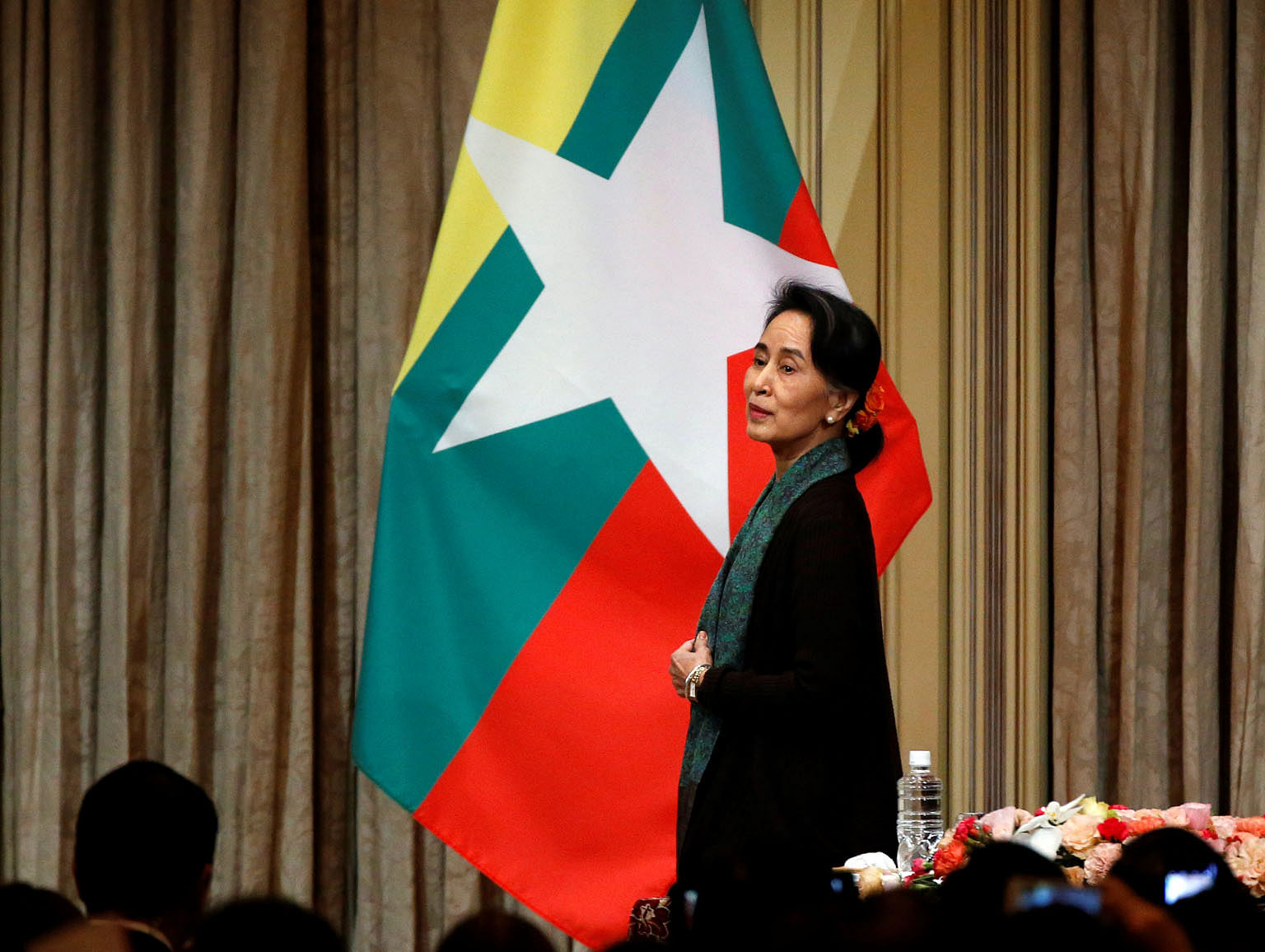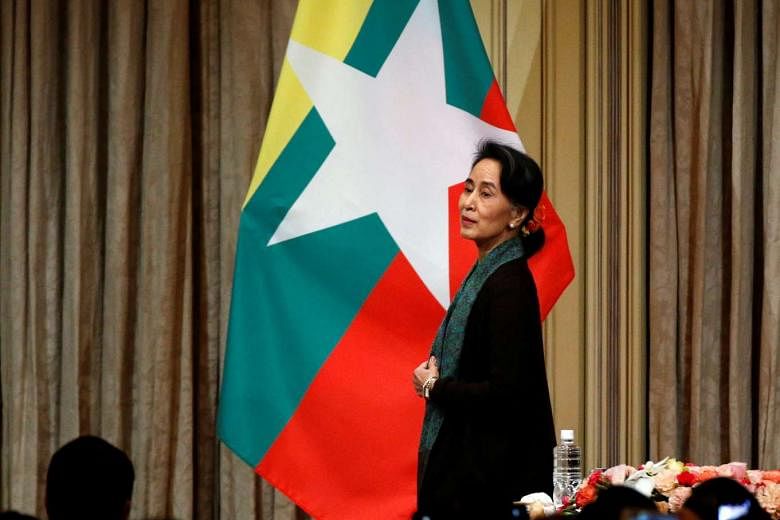With the conclusion of her visit to Japan on Nov 5, Ms Aung San Suu Kyi has, over six months, visited the capitals of almost all the countries of greatest economic, geostrategic and security consequence to Myanmar. The visits by Myanmar's de facto leader have sought to build bridges to these countries, and seek a balance between China and the United States.
Indeed, the most significant successes for Myanmar's National League for Democracy-led government have been in international relations, helped by party leader Ms Suu Kyi's star power and her status as the democracy icon of Myanmar. Since April, she cleverly selected her foreign visits. Although she started her first visit with Thailand in June, it was not a major event and undertaken just to promote the welfare of Myanmar migrant workers there.
Her first major visit was to attend the Asean summit in Laos in September. Instead of President Htin Kyaw, who is constitutionally the head of state as well as head of government, Ms Suu Kyi represented Myanmar at the summit and stood with other Asean heads of state and heads of government at the photo call. That sent a clear message to the international community that she is the de facto head of government of Myanmar.
Then she selected her next visit, to China, where she was welcomed as Prime Minister and set the precedent for other countries. By choosing China as her first destination outside Asean, ahead of her visit to the US, she assured Chinese leaders that Myanmar would continue its strategic partnership with China.
She also refrained from criticising China over human rights issues and even supported China's policies on Taiwan, Tibet and Xinjiang. China responded by supporting Ms Suu Kyi's peace initiatives with ethnic armed groups.
After Beijing, she visited the US and met President Barack Obama, following which, the US lifted the remaining sanctions and removed former military leaders and their close allies from the sanctions list. With one stroke, Ms Suu Kyi was not only able to better integrate Myanmar with the international business community, but also win the trust of the military.

Later she visited India. For India's Act East Policy, Myanmar is a gateway to both East Asia and South-east Asia. Ms Suu Kyi used the visit to rally India's support for infrastructure development and anti-terrorist operations in the western part of Myanmar.
She rounded up her high-level visits with the one to Japan earlier this month. Japan, which competes with China for economic and political influence among Asean countries, promised to provide aid worth US$7.73 billion (S$11 billion) to Myanmar over five years to support its peace process and infrastructure development projects.
ONE GLARING OMISSION However, she has yet to visit the European Union, which is an important economic partner. When Myanmar started to open up, the EU was at the forefront of the international community's re-engagement with Myanmar. In 2013, it lifted all sanctions, restored trade preferences and opened a fully fledged EU office in Myanmar.
In 2014, the EU adopted the Multiannual Indicative Programme 2014-2020 with the allocation of €688 million (S$1.04 billion). Myanmar has become the EU's second-largest bilateral development partner in Asia, after Afghanistan, and it is the fourth-largest investor. It is thus surprising that Ms Suu Kyi has not visited any of the European states since taking office.
While Ms Suu Kyi has had good relations with the United Kingdom, she has in the recent past had reservations about some EU policies on Myanmar during the Thein Sein government. For example, she was not happy when the EU rushed to lift all sanctions (except on arms sales) during the time. She felt some sanctions should have been retained to pressure the Thein Sein government to undertake more reforms, including constitutional amendments.
She had then indirectly criticised the EU by saying that some countries were too optimistic about Mr Thein Sein's reforms and were pursuing only their business interests. She was also suspicious of the EU's support for the Myanmar Peace Centre operations relating to the peace process, because she felt it could help Mr Thein Sein politically in the coming elections.
Regardless of her misgivings and previous disagreements with Brussels, Ms Suu Kyi cannot put off visiting Europe indefinitely. The uncertainties surrounding the Trump administration will put more pressure on the Myanmar leadership to reach out to the EU. Ms Suu Kyi's round of state visits have shown her strategic approach to Myanmar's foreign relations, and the same political acumen is needed to put the past behind so as to take Myanmar forward.
Ms Suu Kyi's choice of India, China, Japan and the US among her first overseas destinations was a carefully crafted strategy to engage and solicit support from all the major stakeholders that would have a big role in Myanmar's political and economic future. She has consciously defused any hints of appearing to favour one major power over another by timing her visits within a short span.
Her strategy of multiple engagement appears to be paying off, as she was able to solicit support and concessions from all parties. It remains to be seen if the strategic "honeymoon period" can endure. It must also be noted that Ms Suu Kyi has been active in Asean meetings, and this bodes well for Myanmar as well as Asean.
- The writer is visiting senior fellow at the ISEAS - Yusof Ishak Institute, and a former minister of information of Myanmar (2014-16). SEA View is a weekly column on South-east Asian affairs.

